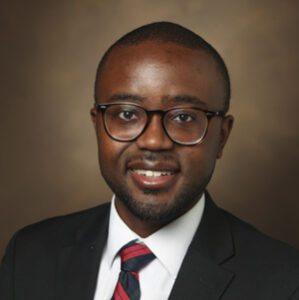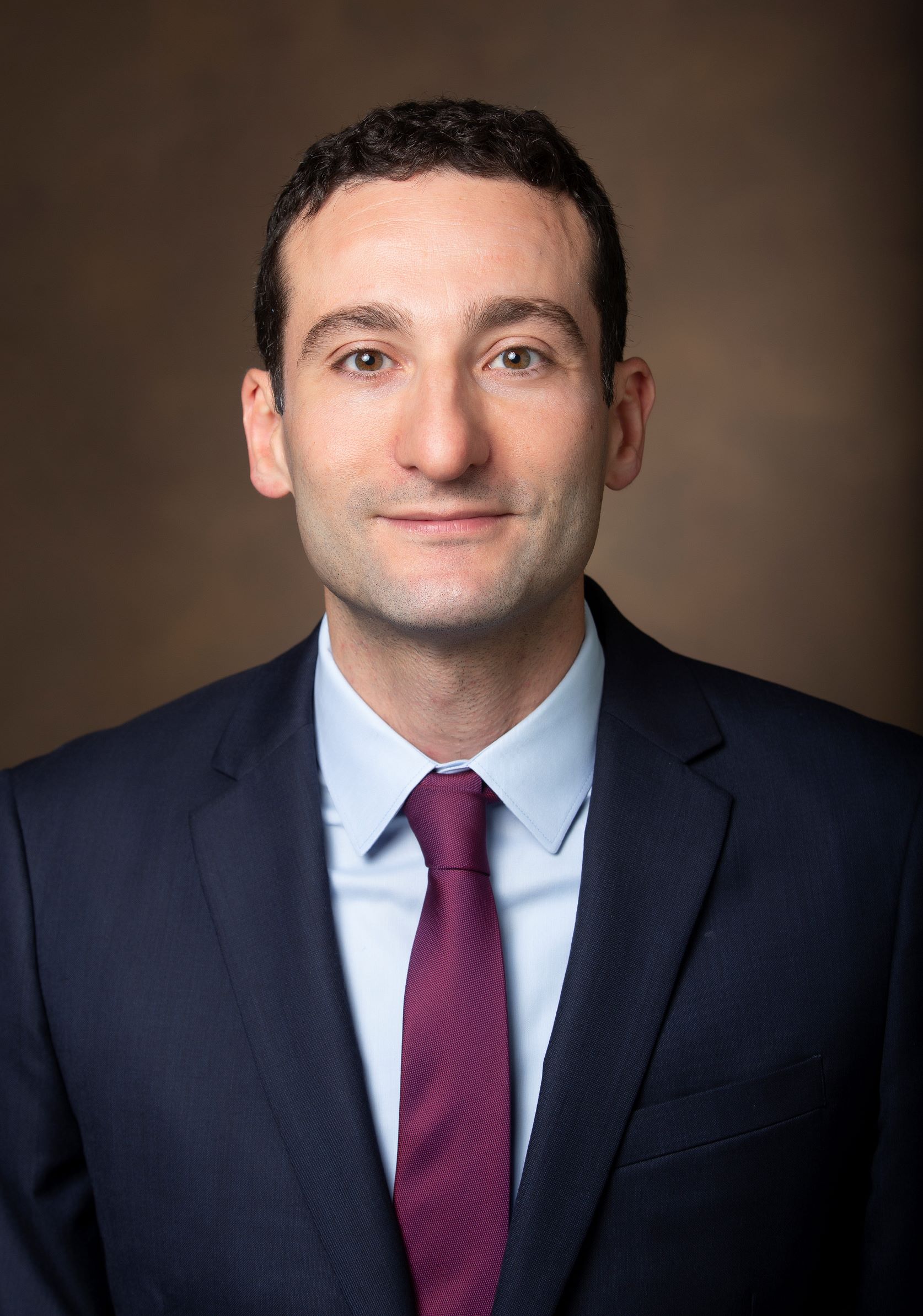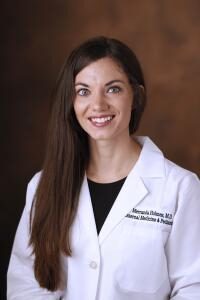Mentorship, Advising, and Coaching
Our personalized medical curriculum means you have a lot of agency and initiative in your own medical education— but that doesn’t mean you have to go it alone.
Here are just a few of the host of physician leaders and mentors who will be there to support, encourage, and cheer you on your medical journey:
College Mentors
Who? The two dedicated faculty members leading your advisory college.
When? M1 through M4. Drop by weekly office hours and study breaks, connect at college-wide events, or set up a time to meet individually whenever needed.
What? Your college mentors are always ready to lend a friendly listening ear to talk about wellness, career questions, current events, and medical school progress.
Meet a College Mentor: Clausyl “CJ” Plummer II, MD
 “I joined Gabbe College in 2023 and have loved it from day 1! I practice brain injury medicine by way of Physiatry (Rehab Medicine aka PM&R) and love optimizing the potential for recovery after these devastating injuries. While I am excited about all things PM&R, I am also happy to chat about any fields within medicine that students are interested in chatting about! I have a passion for medical education, professional development, and career development.
“I joined Gabbe College in 2023 and have loved it from day 1! I practice brain injury medicine by way of Physiatry (Rehab Medicine aka PM&R) and love optimizing the potential for recovery after these devastating injuries. While I am excited about all things PM&R, I am also happy to chat about any fields within medicine that students are interested in chatting about! I have a passion for medical education, professional development, and career development.
One of my favorite things about Vanderbilt SOM is how intentional the curriculum is. It provides a great balance of foundational sciences, medical humanities, research, and clinical reasoning. We have a thoughtful curriculum that allows for a well-roundedness that serves our medical students well as they transition into clinical training/practice.”
Portfolio Coaches
Who? A trained and dedicated faculty member assigned to you.
When? M1 through M4. Meet together regularly throughout your four years.
What? Assists you in becoming an expert learner by developing the capacity to critically appraise your own performance data and translate that data into an action plan for future learning.
 Meet a Portfolio Coach: Eiman Jahangir, MD, MPH
Meet a Portfolio Coach: Eiman Jahangir, MD, MPH
Dr. Jahangir has been a Portfolio Coach since 2020, helping students navigate their classes, clerkships and beyond. He develops meaningful relationships with students over the 4 years of their medical school and provides advice and guidance as needed. By drawing on his experience as a physician and educator, he helps each student develop the learning goals they need to succeed. By developing learning goals, students excel both in medical school and beyond.
Dr. Jahangir enjoys getting to know each of his trainees and enjoys watching each student go from trainee to colleague. Beyond Coaching, Dr. Jahangir loves to discuss Cardiology and medical education as a career choice.
Clinical Preceptors
Who? The clinical supervisor on your FPR1 Patient clinical site.
When? M1 year, one afternoon a week during your clinical experience.
What? Your preceptor welcomes you in to become an integral part of the clinical team at your FPR1 Patient site. They’ll help you better understand the systems of care at work around you and challenge you to take on increasing responsibility.
Master Clinical Teachers
Who? Experienced clinicians specially trained to provide one-on-one instruction during clerkship and immersion phases.
When? M2, every 2 to 3 weeks during each of the 6 core clerkships. M3 and M4, one session during the Acting Internship and one session during your Acute Care course.
What? The MCT from your current clerkship will observe you perform a history and physical exam. Then, they’ll give you immediate feedback and discuss your differential diagnosis and diagnostic plans for the patient. These one-on-one sessions will help strengthen your clinical history-taking, physical exam, and clinical reasoning skills.
 Meet a Master Clinical Teacher: Merranda Holmes, MD
Meet a Master Clinical Teacher: Merranda Holmes, MD
As an MCT for Pediatrics and Internal Medicine, Dr. Holmes draws every day on her experience studying adverse childhood experiences and working with vulnerable populations.
In MCT sessions with her, you’ll grasp the importance of psychosocial barriers in helping patients achieve their desired health outcomes.
What’s more, you’ll learn to think on your feet and adapt your differential diagnosis when a clinical case is not going quite as you expect.
Research Directors
Who? Content experts from diverse areas of medical and basic sciences research.
When? M1 through M4, during the research curriculum.
What? Work with your research directors to identify and select a research area of interest and a mentor to partner with for your 3- to 6-month research project during Immersion.
Specialty Advisors
Who? A faculty member of your choosing from your prospective specialty.
When? M3 and M4, especially throughout the residency application and Match cycles.
What? Bring all your career questions to your specialty advisor. They’ll help you strategically schedule your applications and interviews, plus give you interviewing advice for your chosen specialty— all in the service of helping you achieve a successful residency match.
Through all four of your years here, this amazing network of faculty will push you to excel in medical knowledge, professional development, and preparation for future leadership.